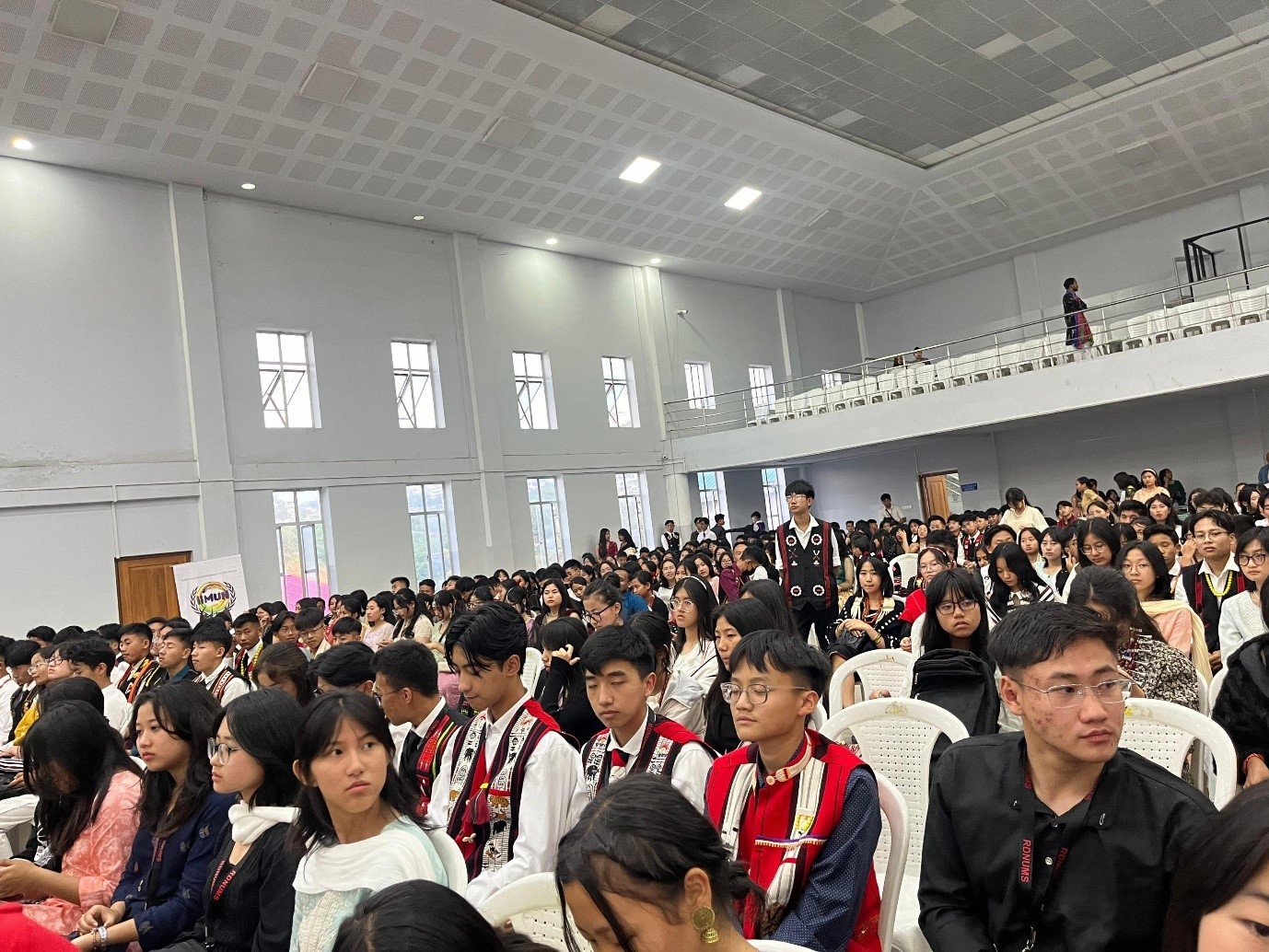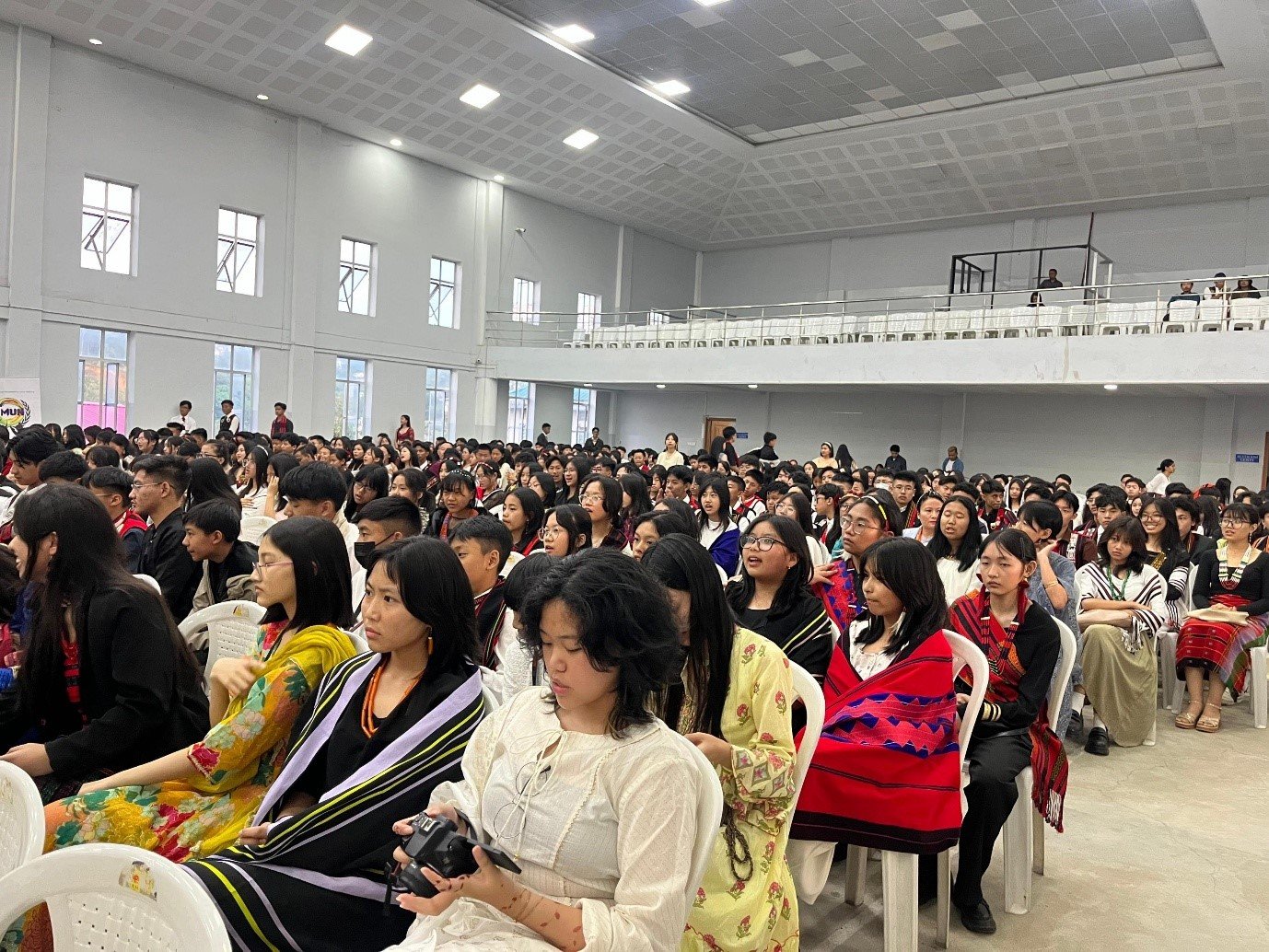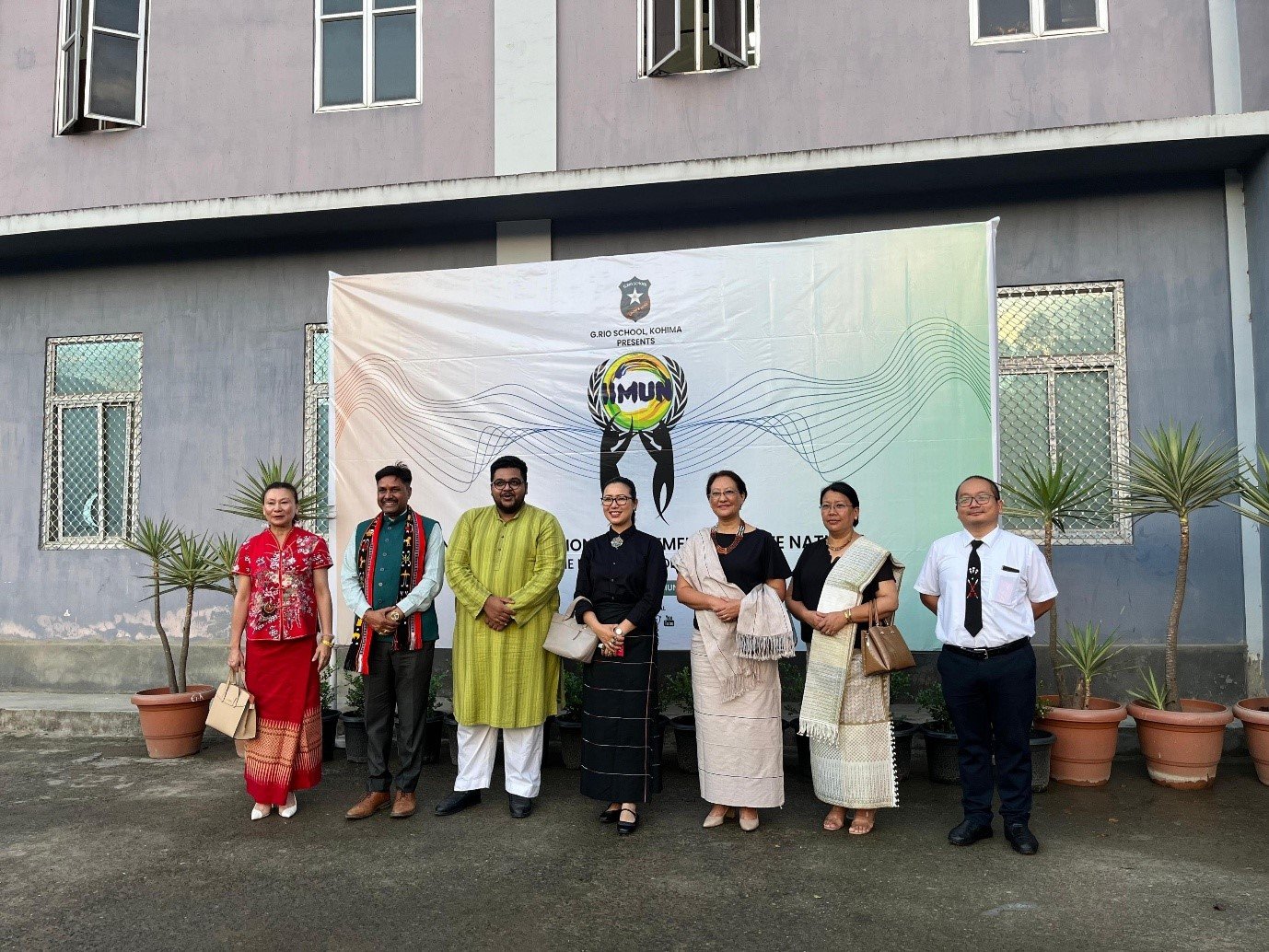The inauguration of the three day India’s International Movement to Unite Nations (IIMUN) Kohima conference began today at G.Rio School,Kohima on May 23.
Special Guest Theyiesinuo Keditsu spoke on the role of literature and culture in shaping the future of democracy. “Democracy is not just a political framework but a living, breathing entity that evolves with the collective will and consciousness of its people. For us Nagas, this mode of governance is not new to us. Many of our tribes, though not all, have practiced some version of it since the time of our ancestors. This is evident in historical accounts passed on through our oral tradition as well in present day Naga traditional cultures that hold the values of freedom, equality, participation and justice as supreme,” said Keditsu. The Naga intellectual viewed that at some point in history, when outsiders came, they too observed semblances of what they called Democracy in their western culture being practiced by Nagas living in regions and villages far removed from each other. The Naga versions of democratic governance entered written records through the writings of colonial officers such as J. P. Mills, J H Hutton.
“Ultimately, Democracy is a dynamic process, and while we agree that literature and culture play an indispensable role in shaping its future today I want to focus on what kind of literature and culture, which literatures and cultures are we drawing from or must we add to our sources to ensure that the democracies we develop cater to our specific needs even while upholding universally cherished ideals. Can we in this little state of Nagaland, contribute something unique from our context and culture to the improvement of Democracy? I think we can. If we begin to include our literatures, written and oral, if we begin to embed ourselves in our cultures and deepen our roots in indigenous knowledge and ways of life, we will join the likes of Gandhi, Ambedkar, Mandela, Malala to broaden the definitions of Democracy and offer nuance and specificity,” asserted Keditsu.

She considered Naga literature as one vital library of the Nagas’ collective memory as well as oral tradition. The works of Naga writers address the democratic themes of justice and moral duty, echoing the ideals of fairness and equal opportunity, said Keditsu, citing the writings of Niketu Iralu, Rev. Wati Aier, Monalisa Changkija who explores the struggles of marginalized communities.
Dr. Keditsu also instanced the valuable narratives of Naga writers Easterine Kire, Avinuo Kire, Emisenla Jamir, Rita Krocha and Neikehienuo Mepfhuo, Aniu Kethoser Kevichusa and Akum Longchari.
“Resilience and hope are pivotal in democratic societies, particularly in regions that have experienced conflict. It is important for us, or rather, let me say, it is our responsibility to spend the time and do the work to understand our pasts, our traditional past where our ancestors established democratic traditions, our modern past,” said Keditsu.
In order to take an active role in shaping democracy, Keditsu opined that it is an exercise in coming to terms with the truths of our history and reaching a place of forgiveness, healing and peace. “By listening, reading, documenting and celebrating the traditions and stories of the Naga people, the uniqueness of our history, we can ensure that our cultural narratives continue to inform and enrich democratic discourse,” concluded Keditsu.
Download Nagaland Tribune app on Google Play

Dr.Pawan Diwedi mentioned that it is a time to look forward on things positively. “India do not lack job, we lack people who will work. It is time to work on how to make our generation work harder and the Youth should be active and work to provide solution for every problem in the country,” said Dwivedi, adding that the IIMUN is a place to debate where the problems are and find solution.
Charge de affairs I.I.M.U.N. Deepaknarayan, spoke on the importance of India’s youth shaping its future. From being the world’s largest youth population, to being the largest demogracy, India has enormous opportunity for young people to learn and grow, said Depaknarayan. He encouraged young people to look inward and understand what they can do for India and learn about their history and heritage. He emphasised on being curious, being inquisitive and constantly questioning the world around us, as we shape our future to be more inclusive, and tolerant. Wishing the best for the upcoming two days, he encouraged the gathering to understand and learn the good from everyone they meet and to go out of their comfort zones to learn new skills and knowledge, but most importantly asked everyone to be open to new friendships and connections with peers from across the city and region.
The opening ceremony was earlier followed by tree plantation outside the auditorium, National Anthem and lamp lighting.
I.I.M.U.N. is a youth organisation comprising 26,000 young organisers who put together student conferences in 220 cities and 35 countries, and work with over 7,500 schools impacting 10 million students annually.


